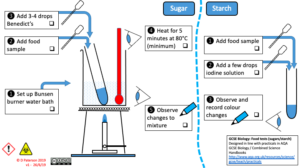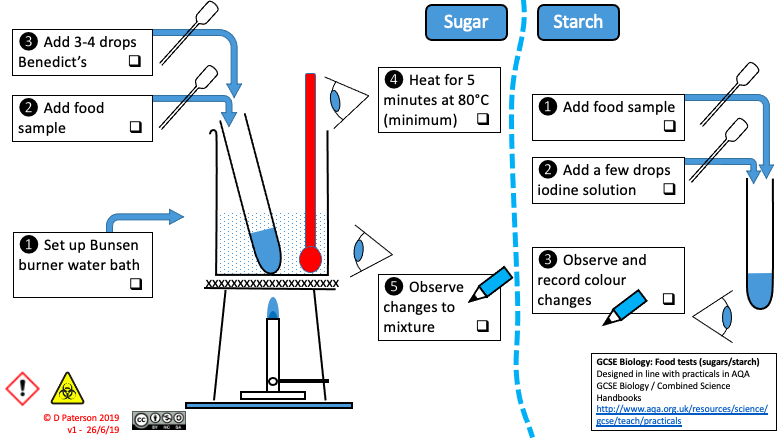Here is the link for the recording
Slides are here with the ITAP task book 1 that is going to the trainees, and the reading that we will use with the trainees.
Here are the slides from the meeting with the info to read offline, please have a read through.
Here is the prompt material, one as sent out and one with comments added
Here is the recording of the discussion from the first session
https://drive.google.com/drive/folders/192fDTblZSiStX7Py4tbA-1ayILYm68Lq?usp=share_link
Also we have a wonderful cross-curricular seminar day on the 12th of May for the trainees. Here is the playlist for your info so you can point trainees at suitable sessions:
SD4 May2023_CrossCirricular
Next Meeting will be:
by Alison Pearson
Who is this guide for?
This guide contains advice that is designed to help newly qualified and early career teachers, so it may be of interest to anyone involved in teacher training, mentoring, managing or generally supporting new teachers. It will also of course be useful for new teachers themselves, but it can be best used in discussion with someone in a supportive role.
Why is it needed?
Becoming a new teacher can be a time of great excitement, but it is also recognised as a time which can have significant stress. This guide is intended to prompt conversations and insight that might help more new teachers to be sustained both in the early parts of their careers and in their futures as teachers.
What is this guide is based on?
It is based on my doctoral research study, which investigated what sustains and challenges long-serving secondary school teachers. This research included an extensive review of the existing research literature, and an empirical in-depth study where long-serving teachers shared their career experiences through interviews and creating career timelines.
How can this guide be used?
This guide includes a series of 11 recommendations: most include things that schools can do to help new teachers, as well as things that new teachers can do in order to thrive even within challenging environments. These could be shared through individual or small group discussions or workshops, with teachers encouraged to consider how each point relates to their experiences to date.
Within each recommendation there are the following sections:
Recommendation: This is the headline summary.
Using the guide quickly? If short for time head straight to the what this might mean in practice’ sections for practical tips.
| What this might mean in practice: | This provides some specific examples of the kinds of topics to discuss and support to provide. |
| How this was supported by my research: | This helps by giving the points that teachers in my study made in relation to their own careers and the advice they would offer new teachers. |
| Why this is important: | This section identifies the significance of the recommendation, including how it relates to teacher research. |
Summary of Recommendations
1 Identify how to reduce workload for new teachers
2 Focus on student relationships
3 Help teachers to focus on today
4 Recognise and value new teachers for their qualities, skills and achievements
5 Help teachers to take a pragmatic approach to wellbeing
6 Helping new teachers to understand the contextual nature of teaching
7 To help new teachers understand that everyone is motivated and challenged by a combination of different things
8 Help teachers to understand how to make the environment work for them
9 Help teachers to recognise there is a balance between acceptance and agency
10 Help teachers to find opportunities for growth and challenge
11 Help teachers to understand that there may be ups and downs throughout their careers
| Recommendation 1 | Identify how to reduce workload for new teachers |
| What this might mean in practice | Helping to identify easier marking strategies (eg peer marking in class, student self-marking against a template).Explaining how to find and evaluate existing resources (rather than creating everything from new).Being paired with a more experienced teacher for lesson planning.Support with identifying how to differentiate resources for use in class.Setting realistic expectations in terms of what is “good enough” in order to have a sustainable workload.Providing support to help with practical challenges, such as how to book equipment or use the photocopier.Ensuring that any non-teaching time is in long enough blocks to be useful. |
| How this was supported by my research | Teachers identified that workload was a significant challenge throughout their careers.Whilst these experienced teachers had all found strategies that helped them to manage their workload these were helped significantly by the expectations set by the school, and the advice given by others.Support for the practical aspects of teaching, including access to resources, was also something where the school had significant levels of influence. |
| Why this is important | Workload has been identified as a significant cause of stress, both for new teachers and those with greater experience, and strategies learnt in the early stages of teaching will help teachers both now and in their futures.Practical support given will also help to reduce time wasted and frustration in trying to resolve problems. |
Recommendation 2 Focus on student relationships
What this might mean in practice
student relationships might look like, and how they might help them.
• Helping teachers to identify what positive teacher-
How this was supported by my research
Teachers prioritised positive student relationships as a key element of teaching, both in terms of their own satisfaction and the way that it made their teaching easier.
This was helped by developing an understanding of the circumstances and challenges that students were facing, which enabled them to depersonalise any behaviour issues.
Why this is important
Positive student relationships can support a positive classroom atmosphere, help learning to take place more effectively, and help students to be less judgmental about aspects that don’t go to plan.
As well as reducing any challenges that difficult behaviour can create, building positive relationships with students is also an aspect which is often reported as increasing role satisfaction.
Recommendation 3 Help teachers to focus on today
What this might mean in practice
particular day.
• Identifying the steps needed to get through that
How this was supported by my research
Teachers in this study used a range of strategies, both to get through difficult days, and to enhance their enjoyment on a daily basis.
Some of this is reliant on the expectations within the school, and teachers may need help at first in working out which tasks are essential in that moment and which could be safely left for another time.
Why this is important
This skill can help teachers to tackle the essential tasks needed for that day in a pragmatic way, rather than setting unrealistic expectations, and can help them to gain feelings of satisfaction and accomplishment.
Dr Alison Pearson, University of Exeter, December 2022
Sustaining a career in teaching
Recommendation 4
Recognise and value new teachers for their qualities, skills and achievements
What this might mean in practice
skills, qualities and experiences they bring to the role.
• Getting to know new teachers’ backgrounds and the
How this was supported by my research
Teachers’ satisfaction levels were much higher when they felt valued as individuals and noticed for their efforts as well as their achievements.
The achievements regarded as most significant were not examination results, but were instead aspects such as building positive relationships, motivating a student who finds learning difficult, organising an extracurricular activity or demonstrating their specialist subject expertise.
The long-serving teachers in my study reflected that they felt most job satisfaction as new teachers when their contribution was seen to be of value.
Why this is important
A sense of feeling valued and recognised is one of the factors identified as important in motivating teachers, as is a sense of accomplishment.
Focussing on recognition for effort and achievements at a student, group or lesson level also helps to encourage teachers to do the same, supporting recommendation 3.
Recommendation 5
Help teachers to take a pragmatic approach to wellbeing
What this might mean in practice
and finish times.
• Helping teachers to create boundaries, including start
How this was supported by my research
Teachers in my study had recognised that to survive in the longer term that some level of compromise is needed: if they tried to do everything to perfection this would be at the expense of their own wellbeing and their ability to continue in teaching. Most of the practical strategies included some level of setting boundaries, even if this was only on certain days of the week where they had a regular commitment to a sport, or to time with friends or family.
This can be particularly hard for new teachers to implement without support and encouragement from those in positions of responsibility at school, and needs to be considered alongside the strategies for reducing workload in recommendation 1.
Why this is important
Teaching is a profession recognised as being highly stressful and at risk of burnout, with implications for health, wellbeing and career longevity.
Both the wider research and my study prioritises sustained actions to ensure that wellbeing is not being sacrificed in order to achieve perceived “ideal” teaching, and that this sustained balance is more important than one-off wellbeing interventions.
Recommendation 6
Helping new teachers to understand the contextual nature of teaching
What this might mean in practice
departments in the school.
• Identifying differences between groups, lessons and
How this was supported by my research
Teachers in my study talked about the differences between different groups of students, and how different strategies might be needed to teach the same topic to different groups.
They also discussed many important differences that they experienced in the different schools they worked in, and also the differences that happened as the result of changes within the school (such as a new headteacher or examining board) and at government policy level (such as curriculum or assessment changes).
Why this is important
This can help teachers to recognise the need to adapt their approach for different students/groups/subjects/situations.
It can also help teachers not to generalise situations that have either gone badly or well, but to identify what they think might have helped or hindered and use this in future.
It can also help teachers to be aware that life in a different school is likely to be different, which in turn might help them to work out what kind of school and school culture is the best fit for them.
Knowing that schools are different might mean that an unhappy teacher can find a better fit for them, rather than leaving the profession altogether. Likewise it can help teachers to prepare for transitions and seek support within their new school or department.
Dr Alison Pearson, University of Exeter, December 2022
Sustaining a career in teaching
Recommendation 7
To help new teachers understand that everyone is motivated and challenged by a combination of different things
What this might mean in practice
find most motivating and challenging.
• Asking new teachers to think about the aspects they
How this was supported by my research
The teachers in my study were each motivated and challenged by different aspects of the role, and this changed at different points in their career and in different schools. Most did not start their careers with a vocational drive to teach, but found job satisfaction in a range of different ways such as the enjoyment of a particular subtopic, working with young people, working in a particular team or developing their subject expertise.
In some cases the differences were quite stark: for instance one teacher was really happy within her school because it was friendly and supportive, whilst another teacher at the same school was actively seeking a more challenging urban school.
Why this is important
Many generalisations are referred to within teaching circles, the media and in government and school policy which can lead to teachers feeling isolated, or that they should act or react in particular ways.
There are often assumptions that teachers are motivated by a vocational longing yet teachers might not feel this, or might become worried if they start their careers with a sense of vocational purpose which then fades.
It is important for teachers to know that they might still find enjoyment within the role, even if they had not had a lifetime ambition to be a teacher.
Recommendation 8 Help teachers to build staff relationships
What this might mean in practice
relationships with staff across the school.
• Raising awareness of the importance of building
How this was supported by my research
Support from other staff was seen as important for most of the teachers in my research, and positive relationships was also an important factor in making the work more enjoyable and the school to be a positive place to work.
Some teachers particularly enjoyed working with others for a common purpose, and developing connections with other new teachers was felt to be particularly valuable in the early career stages.
Why this is important
Being in a positive and supportive environment is an important element of teacher resilience, and the priority should be to develop an environment that is supportive as possible.
Teacher-teacher support can help teachers to learn from each other, share problems, reduce workload and prevent feelings of isolation. Collegiality is also an aspect that is often reported as being a positive feature in workplaces: not just to overcome challenges but as part of the enjoyment of work.
Recommendation 9
Help teachers to recognise there is a balance between acceptance and agency
What this might mean in practice
that teachers may have more or less opportunity to influence.
• Openly discussing the differences between aspects
How this was supported by my research
Teachers in my study had managed to navigate a path between acceptance of the aspects that they could not change, and making changes where this was possible.
In some cases their use of agency was in prioritising work to postpone until a later point, especially if they felt it was detrimental to students for them to implement it immediately.
Why this is important
It has been identified that a sense of agency or autonomy can help people to have greater levels of job satisfaction, yet it can be hard for new teachers to recognise where they can make changes and where they need to accept aspects that cannot be changed (for example government policy or the nature of the local community).
Encouraging new teachers to develop their own teaching style within lessons can help to fulfil the need for agency over those things that they can control.
Recommendation 10
Help teachers to find opportunities for growth and challenge
What this might mean in practice
• Identifying areas of extra interest or responsibility that
might be suitable (eg mentoring newer teachers, being involved in a school event or project, taking part in a particular CPD event).
How this was supported by my research
Whilst this might seem counterintuitive in trying to reduce workload, teachers reported gaining enjoyment from their involvement in different activities.
Teachers in my study also felt a sense of value from being asked to take on additional responsibility.
Why this is important
An important part of thriving in teaching is what teachers gain from the role, as well as what they put into it.
Teachers’ own learning and growth is an important element which can contribute to their overall sense of job satisfaction and accomplishment.
Sustaining a career in teaching
Recommendation 11
Help teachers to understand that there may be ups and downs throughout their careers
What this might mean in practice
• Discussing the fact that many things can contribute to
the positive and challenging elements of teaching, and these can happen at any time.
How this was supported by my research
Teacher timelines showed individual trajectories, with high-and low-points happening throughout their careers, at different times and for very different durations.
Why this is important
Previous research has identified that teaching follows a set pattern and that the challenges and satisfaction varies according to career phases. This can mean that teachers have expectations, eg that if they work hard in their early career then the work will lessen later.
Understanding that their career may have multiple highs and lows might help teachers to develop a more sustainable pace and also help to develop strategies for how to manage these lows and highs.
Finally
I hope that this guide helps in some way to help new teachers to navigate the early years of this amazing profession, and to find the things that give you joy .
I wish you all the best of luck for a long and happy career.
Further reading
Follow up
I would love to hear if this has been useful, or any aspects that have been challenging to implement: likewise if you would like to be involved in future wellbeing-related research.
I can be contacted here: a.pearson5@exeter.ac.uk
Dr Alison Pearson, University of Exeter, December 2022
Lead Mentor Training, Development and Consultation, Spring term 2023
This term we covered 3 items as part of the mentor training:
1. Developing trainee reflection
2. Target setting
3. CP FRAP
The meeting training recording from the Jan 2023 meeting is here with a run through of the training and the slides I used in the meeting are here. If you can’t access that MSStream site you can watch the video below. You will need to use the email you received the meeting notification on to access the video – this is usually your school email.
Slides from the meeting (below)
The main discussion was on the future vision for Exeter ITE on the mural here.
I mention the links to the curriculum blogs that are in the mentor zone
PGCE Secondary Maths Curriculum Blog and PGCE Secondary Science Curriculum Blog
Hello, in the meeting this week we looked at the process for the FRAP for the next 2 weeks and the curriculum update. Part 1 is the Frap process and part 2 is the curriculum.
I refer to the curriculum map which is here
The slides are below
in other news… Vicky is looking for schools to take part in a Maths in Science study she is running – details below – Vicky can be contacted @ v.j.wong@exeter.ac.uk
Students are asked to research and reflect on misconceptoins for assignment 1 and are encouraged to talk to pupils about the misconceptions during the 2 week placement in November.
Here is the assignment brief
Each year the PGCE science trainees meet at the university five times
| Date | |
| 1 | 13th Jan : Science of Learning, lesson planning, Employment, Assignments and SEND |
| 2 | 3rd Feb: Planning great lessons, Assessment and EPS assignment |
| 3 | 17th March: Behaviour management, making the time fit the job, working with parents, Analysising your EPS data |
| 4 | 12th May: Cross curricular focus, science demonstrations |
| 5 | 28th June: Ted Wragg awards, top tips for ECT from a current ECT, getting outside |
Summative assignment deadline: April 2023. This is submitted to eBART. Feedback will be returned by in May 2023.
This EPS assignment draws together all the different elements of your teaching and training experiences. It is designed to allow you to focus on an aspect of teaching and learning in your placement school that interests you, for you to critically analyse, to reflect on and even self-appraise. You will need to consider your own investigation focus, your reasons for exploring this and the theoretical context within which this sits. In addition, we would expect you to situate your investigation in the context of already existing research in the field and to show how your investigation complements, extends or fills the gaps left by previous studies. You will need to design data collection instruments, collect data, analyse and interpret this data, and state how this has informed your practice. You will also be expected to adhere to the ethical requirements of educational research.
The focus of the investigation is deliberately open so as to allow you to investigate and explore something that interests you within your subject area. However, experience shows us that trainees benefit most when the investigation focus is also reflected in targets for trainees from their school-based Weekly Subject Development Meetings, or when a focus for investigation is identified through discussion with the Principal Subject Tutor. You could focus on AfL (Assessment for Learning) techniques, teaching with EAL pupils, behaviour management, etc.
To inform your decision:
1. Refer to the EPS lectures;
2. Consider your own teaching development needs;
3. Discuss your ideas with your PST and consider the suitability of the school setting.
Your subject tutors will support you to identify an issue for investigation and will provide guidance on how to conduct your investigation through a subject-specific ‘lens’.
ABSTRACT: Practical work in secondary-level chemistry laboratories involves a high cognitive load for students. In addition to reading and understanding instructions, students have to think about observations and the underlying chemical concepts, as well as deal with the noise and social interaction of a busy classroom. One form of extraneous cognitive load in practical instructions is the split-attention effect, whereby students have to continually switch their attention between apparatus diagrams and the written instructions. This article discusses the development, use, and evaluation of instructions that integrate apparatus diagrams with simplified textual and pictographic instructions.
Four practical tasks were designed and evaluated: distillation of a crude oil substitute, properties of crude oil fractions, synthesis of copper sulfate, and pH and neutralization. Data were collected on students’ and teacher’s classroom experiences with the instructions, and students’ learning was assessed after the practicals. In general, students found the practicals easy to complete, liked the clarity of the instructions, needed to ask few practical-related questions during the tasks, and mostly gave at least partially appropriate answers to postpractical questions on what they had observed and done. Integrated instructions provide a potentially useful method for reducing students’ cognitive load and increasing their confidence and understanding during practical work.
KEYWORDS: High School/Introductory Chemistry, First-Year Undergraduate/General, Laboratory Instruction, Hands-On Learning/Manipulatives, Learning Theories, Microscale Lab, Applications of Chemistry
Read the full article below and download the resources here
At the Autumn meeting a member of our science teaching community, David Paterson shared their ideas about integrated instructions. They were kind enough to proved an editable copy of all their resources, which includes remade integrated instructions for the core practicals for the 3 sciences.
Read more about integrated instructions here

Here is the link for the recording https://youtu.be/SRLZvB4sOXA Slides are here with the ITAP task book 1 that is going to the trainees, and the reading that we will use...
Continue reading...
Here are the slides from the meeting with the info to read offline, please have a read through. Here is the prompt material, one as sent out and one with...
Continue reading...
by Alison Pearson Who is this guide for? This guide contains advice that is designed to help newly qualified and early career teachers, so it may be of interest to...
Continue reading...
Lead Mentor Training, Development and Consultation, Spring term 2023 This term we covered 3 items as part of the mentor training: 1. Developing trainee reflection2. Target setting3. CP FRAP The...
Continue reading...Hello, in the meeting this week we looked at the process for the FRAP for the next 2 weeks and the curriculum update. Part 1 is the Frap process and...
Continue reading...Students are asked to research and reflect on misconceptoins for assignment 1 and are encouraged to talk to pupils about the misconceptions during the 2 week placement in November. Here...
Continue reading...Each year the PGCE science trainees meet at the university five times Date 1 13th Jan : Science of Learning, lesson planning, Employment, Assignments and SEND 2 3rd Feb:...
Continue reading...Summative assignment deadline: April 2023. This is submitted to eBART. Feedback will be returned by in May 2023. This EPS assignment draws together all the different elements of your teaching and...
Continue reading...ABSTRACT: Practical work in secondary-level chemistry laboratories involves a high cognitive load for students. In addition to reading and understanding instructions, students have to think about observations and the underlying...
Continue reading...
At the Autumn meeting a member of our science teaching community, David Paterson shared their ideas about integrated instructions. They were kind enough to proved an editable copy of all...
Continue reading...